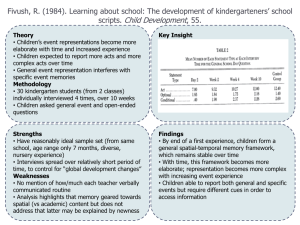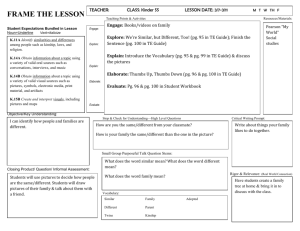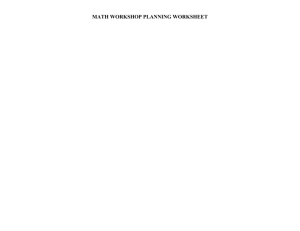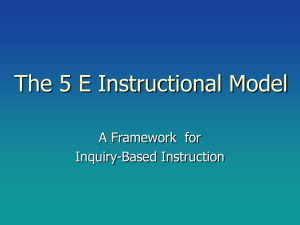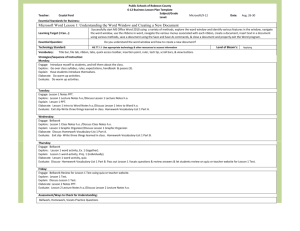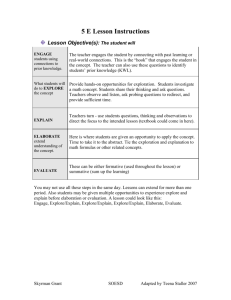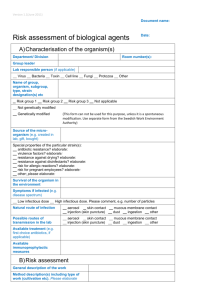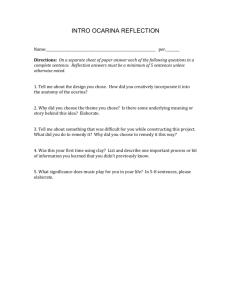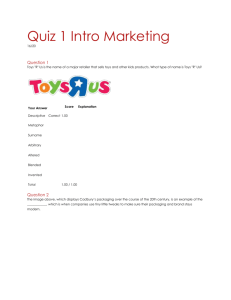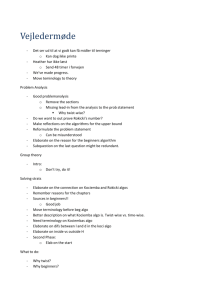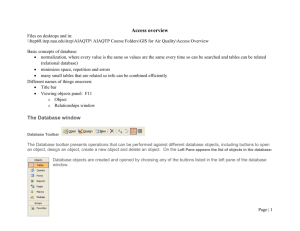School Crisis Intervention Referral Form 1
advertisement
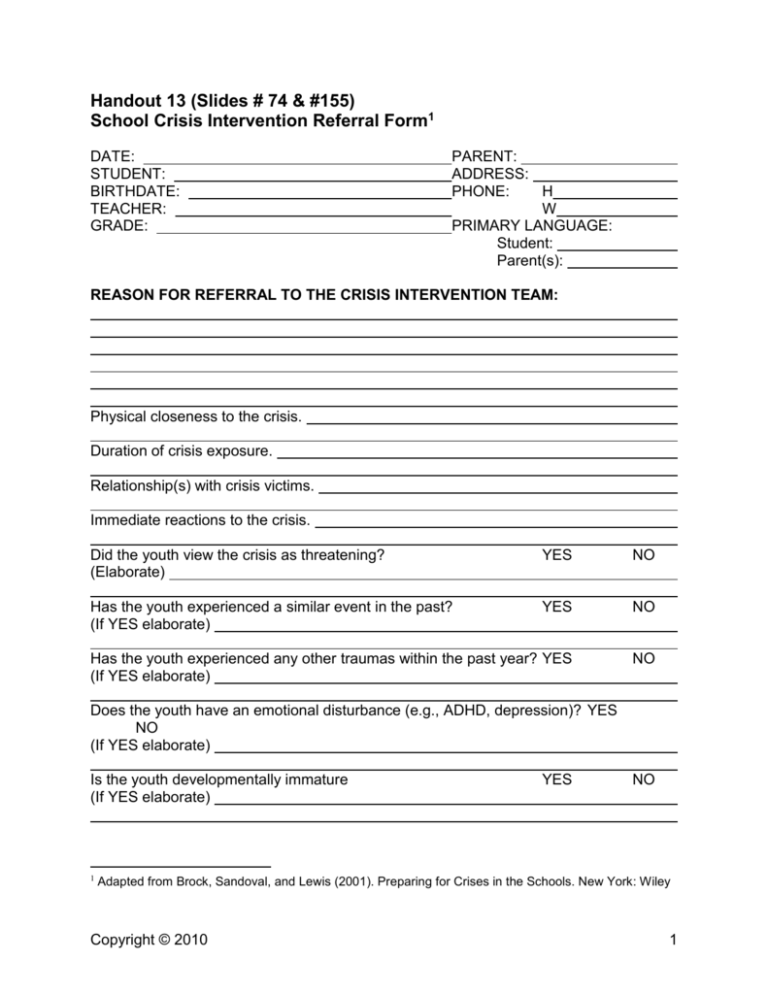
Handout 13 (Slides # 74 & #155) School Crisis Intervention Referral Form1 DATE: STUDENT: BIRTHDATE: TEACHER: GRADE: PARENT: ADDRESS: PHONE: H W PRIMARY LANGUAGE: Student: Parent(s): REASON FOR REFERRAL TO THE CRISIS INTERVENTION TEAM: Physical closeness to the crisis. Duration of crisis exposure. Relationship(s) with crisis victims. Immediate reactions to the crisis. Did the youth view the crisis as threatening? (Elaborate) YES NO Has the youth experienced a similar event in the past? (If YES elaborate) YES NO Has the youth experienced any other traumas within the past year? YES (If YES elaborate) NO Does the youth have an emotional disturbance (e.g., ADHD, depression)? YES NO (If YES elaborate) Is the youth developmentally immature (If YES elaborate) 1 YES NO Adapted from Brock, Sandoval, and Lewis (2001). Preparing for Crises in the Schools. New York: Wiley Copyright © 2010 1 Crisis Reaction Check List1 (Check all that you believe apply to the youth you are referring for crisis intervention) GENERAL FEELINGS GENERATED BY THE CRISIS Fear Helplessness Horror GENERAL BEHAVIORS GENERATED BY THE CRISIS Disorganized Agitated SPECIFIC FEELINGS/BEHAVIORS GENERATED BY THE CRISIS Reactions that Suggest Feeling Unconnected With Emotions, Activities, and/or Others Has lost interest in previously enjoyed activities. Reports feeling separated, detached, or estranged from others. Reports feeling separated or detached from own body. No longer shows previous range of emotions. Reports feeling guilty about having survived, or about not having been more affected by the event. Reports feeling that life is unreal and/or like a dream. Reactions that Suggest a Reexperiencing of the Crisis Reports constant & unwanted memories, thoughts, images, or perceptions (e.g., smells) of the event. Exhibits repetitive play that may be symbolic of the event (among preschoolers such play may simply have frightening themes and may not necessarily be symbolic of the event). Reports having frightening dreams or nightmares. Reports having dreams about the event. Reports feeling as if the event were reoccurring. Displays intense emotional distress when exposed to crisis reminders. Displays physiological reactivity (e.g., rapid heart rate, sweating, headaches) when exposed to crisis reminders. Reactions that Suggest an Avoidance of Crisis Reminders Avoids talking about the crisis. Avoids situations/locations that are associated with the crisis. Avoids crisis reminders. Does not remember important elements of the event. Does note expect to grow up, get married, go to college, etc. Reactions that Suggest an Increased Level of Physical Arousal Has difficulty falling asleep. Awakens in the middle of the night and can not get back to sleep. Displays an exaggerated startle response. Appears to have difficulty concentrating. Has difficulty completing tasks. Displays increased irritability. Displays increased aggressiveness. Appears to be hypervigilant. Reports physical problems such as stomach- and headaches. Appears to be depressed. 1 Adapted from the diagnostic criteria for posttraumatic and acute stress disorders (APA, 2000), and from Schäfer et al. (2004) and Young et al. (1998). Copyright © 2010 2
